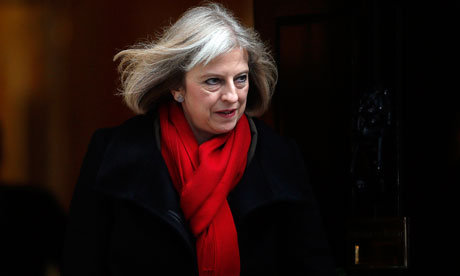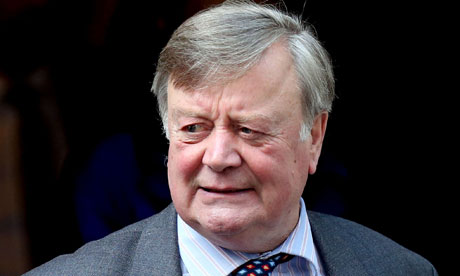
“Blessed is the nation that doesn’t need heroes" Goethe. “Hero-worship is strongest where there is least regard for human freedom.” Herbert Spencer. "My 80% friend isn't my 20% enemy" Ronald Reagan.
Search This Blog
Monday 19 August 2013
Secret courts: justice conducted behind closed doors is no justice at all

Tuesday 12 March 2013
The justice and security bill will have a corrosive impact on individual rights.
I'm leaving the Liberal Democrats too

Sunday 24 February 2013
To fight India, we fought ourselves
Tuesday 11 September 2012
Justice and security bill is designed to stop disclosure of intelligence secrets

Friday 15 June 2012
Tuesday 5 June 2012
Unemployed bussed in to steward river pageant
Call for inquiry into use of unpaid jobseekers as jubilee stewards

Saturday 1 October 2011
Is this a scam?
Warning: your facebook account will be ...
| From: | Facebook (email@ares43.ded.host-univers.net) |
| Sent: | 01 October 2011 03:44:33 |
| To: | xxxxx@hotmail.com |
 |
||||||
| This message was sent to your email address. If you don't want to receive these emails from Facebook in the future or have your email address used for friend suggestions, you can unsubscribe. Facebook, Inc P.O. Box 10005 , Palo Alto, CA 94303 | ||||||
Monday 15 August 2011
Oprah and the philanthropy that chokes

- © 2011 Guardian News and Media Limited or its affiliated companies. All rights reserved.
Tuesday 2 August 2011
The relentless pursuit of productivity is socially divisive, environmentally destructive and doesn't make us any happier
Happiness: the price of economic growth

- guardian.co.uk © Guardian News and Media Limited 2011
Monday 18 July 2011
How to wipe out Islamic terror
The terrorist blast in Mumbai on July 13, 2011, requires decisive soul-searching by the Hindus of India. Hindus cannot accept to be killed in this halal fashion, continuously bleeding every day till the nation finally collapses. Terrorism I define here as the illegal use of force to overawe the civilian population to make it do or not do an act against its will and well-being.
Islamic terrorism is India’s number one problem of national security. About this there will be no doubt after 2012. By that year, I expect a Taliban takeover in Pakistan and the Americans to flee Afghanistan. Then, Islam will confront Hinduism to “complete unfinished business”. Already the successor to Osama bin Laden as al-Qaeda leader has declared that India is the priority target for that terrorist organisation and not the USA.
Fanatic Muslims consider Hindu-dominated India “an unfinished chapter of Islamic conquests”. All other countries conquered by Islam 100% converted to Islam within two decades of the Islamic invasion. Undivided India in 1947 was 75% Hindu even after 800 years of brutal Islamic rule. That is jarring for the fanatics.
In one sense, I do not blame the Muslim fanatics for targeting Hindus. I blame Hindus who have taken their individuality permitted in Sanatan Dharma to the extreme. Millions of Hindus can assemble without state patronage for the Kumbh Mela, completely self-organised, but they all leave for home oblivious of the targeting of Hindus in Kashmir, Mau, Melvisharam and Malappuram and do not lift their little finger to help organise Hindus. If half the Hindus voted together, rising above caste and language, a genuine Hindu party would have a two-thirds majority in Parliament and the assemblies.
The first lesson to be learnt from the recent history of Islamic terrorism against India and for tackling terrorism in India is that the Hindu is the target and that Muslims of India are being programmed by a slow reactive process to become radical and thus slide into suicide against Hindus. It is to undermine the Hindu psyche and create the fear of civil war that terror attacks are organised.
Hindus must collectively respond as Hindus against the terrorist and not feel individually isolated or, worse, be complacent because he or she is not personally affected. If one Hindu dies merely because he or she was a Hindu, then a bit of every Hindu also dies. This is an essential mental attitude, a necessary part of a virat (committed) Hindu.
We need a collective mindset as Hindus to stand against the Islamic terrorist. The Muslims of India can join us if they genuinely feel for the Hindu. That they do I will not believe unless they acknowledge with pride that though they may be Muslims, their ancestors were Hindus. If any Muslim acknowledges his or her Hindu legacy, then we Hindus can accept him or her as a part of the Brihad Hindu Samaj (greater Hindu society) which is Hindustan. India that is Bharat that is Hindustan is a nation of Hindus and others whose ancestors were Hindus. Others, who refuse to acknowledge this, or those foreigners who become Indian citizens by registration, can remain in India but should not have voting rights (which means they cannot be elected representatives).
Any policy to combat terrorism must begin with requiring each and every Hindu becoming a virat Hindu. For this, one must have a Hindu mindset that recognises that there is vyaktigat charitra (personal character) and rashtriya charitra (national character). For example, Manmohan Singh has high personal character, but by being a rubber stamp of a semi-literate Sonia Gandhi and waffling on all national issues, he has proved that he has no rashtriya charitra.
The second lesson for combating terrorism is that we must never capitulate or concede any demand, as we did in 1989 (freeing five terrorists in exchange for Mufti Mohammed Sayeed’s daughter Rubaiya) and in 1999, freeing three terrorists after the hijack of Indian Airlines flight IC-814.
The third lesson is that whatever and however small the terrorist incident, the nation must retaliate massively. For example, when the Ayodhya temple was sought to be attacked, we should have retaliated by re-building the Ram temple at the site.
According to bleeding heart liberals, terrorists are born or bred because of illiteracy, poverty, oppression, and discrimination. They argue that instead of eliminating them, the root cause of these four disabilities in society should be removed. This is rubbish. Osama bin laden was a billionaire. In the failed Times Square episode, failed terrorist Shahzad was from a highly placed family in Pakistan and had an MBA from a reputed US university.
It is also a ridiculous idea that terrorists cannot be deterred because they are irrational and willing to die. Terrorist masterminds have political goals and a method in their madness. An effective strategy to deter terrorism is to defeat those political goals and to rubbish them by counter-terrorist action.Thus, I advocate the following strategy to negate the political goals of Islamic terrorism in India.
Goal 1: Overawe India on Kashmir.
Strategy: Remove Article 370 and resettle ex-servicemen in the valley. Create Panun Kashmir for the Hindu Pandit community. Look for or create an opportunity to take over PoK. If Pakistan continues to back terrorists, assist the Baluchis and Sindhis to get their independence.
Goal 2: Blast temples, kill Hindu devotees.
Strategy: Remove the masjid in Kashi Vishwanath temple and the 300 masjids at other temple sites.
Goal 3: Turn India into Darul Islam.
Strategy: Implement the uniform civil code, make learning of Sanskrit and singing of Vande Mataram mandatory, and declare India a Hindu Rashtra in which non-Hindus can vote only if they proudly acknowledge that their ancestors were Hindus. Rename India Hindustan as a nation of Hindus and those whose ancestors were Hindus.
Goal 4: Change India’s demography by illegal immigration, conversion, and refusal to adopt family planning.
Strategy: Enact a national law prohibiting conversion from Hinduism to any other religion. Re-conversion will not be banned. Declare that caste is not based on birth but on code or discipline. Welcome non-Hindus to re-convert to the caste of their choice provided they adhere to the code of discipline. Annex land from Bangladesh in proportion to the illegal migrants from that country staying in India. At present, the northern third from Sylhet to Khulna can be annexed to re-settle illegal migrants.
Goal 5: Denigrate Hinduism through vulgar writings and preaching in mosques, madrassas, and churches to create loss of self-respect amongst Hindus and make them fit for capitulation.
Strategy: Propagate the development of a Hindu mindset.
India can solve its terrorist problem within five years by such a deterrent strategy, but for that we have to learn the four lessons outlined above, and have a Hindu mindset to take bold, risky, and hard decisions to defend the nation. If the Jews could be transformed from lambs walking meekly to the gas chambers to fiery lions in just 10 years, it should not be difficult for Hindus in much better circumstances (after all we are 83% of India), to do so in five years.
Guru Gobind Singh showed us how just five fearless persons under spiritual guidance can transform a society. Even if half the Hindu voters are persuaded to collectively vote as Hindus, and for a party sincerely committed to a Hindu agenda, then we can forge an instrument for change. And that is the bottom line in the strategy to deter terrorism in a democratic Hindustan at this moment of truth.
The writer is president of the Janata Party, a former Union minister, and a professor of economics.
Saturday 14 November 2009
Private supply of a 'Public Good'
The growing number of private security companies policing UK streets is a worrying development, senior police figures say.
The Police Federation of England and Wales said there is "huge concern" over their powers and accountability.
Former Metropolitan Police Commissioner Sir Ian Blair has also said there should be no role for the private sector in Britain's law enforcement.
The firms typically charge residents to patrol streets and deter troublemakers.
Regular patrols
The growth in private security firms taking on policing work comes despite an increase in police numbers.
A record 141,252 police officers are available for duty in England and Wales, although there have been reductions in 16 police areas.
Private security firms have no powers, although chief constables may award some limited ones such as allowing them to move people on.
BBC correspondent Keith Doyle joined one private security company who began patrolling the streets of Darlington this week.
He said residents there pay between £2 and £4 a week to have their homes included in regular patrols and to receive an instant response if they need help.
"These guards know they have no powers but they say simply by being here it prevents trouble and that's something local residents agree with and have signed up for," he said.
Francis Jones of Sparta Security told our correspondent the patrols provided a visual deterrent to potential criminals.
He said: "We are giving a deterrent to them and also raising the confidence of the public who have taken us on board and there are quite a lot of people coming forward, ringing us up, wanting our service."
'Fear of crime'
But the vice chairman of the Police Federation, which represents officers, said such firms could cause problems.
Simon Reed said: "We have got people who have certain powers, we are going to see them in uniform. Potentially there is confusion there for the public and who are they actually accountable to?
"I understand the public's fear of crime but actually it's the police who patrol public space and we should be very wary about giving those powers to private security companies."
Sir Ian Blair said more use should be made of community officers and civilians working within the police, otherwise there could be more private police patrols.
He said: "I do not see community safety as a commodity to be bought and sold and therefore we shouldn't be having the private sector in policing.
"Unless we get this right, we will end up with private security coming in and they will work for the rich and the poor will go without."
Use Hotmail to send and receive mail from your different email accounts. Find out how.



